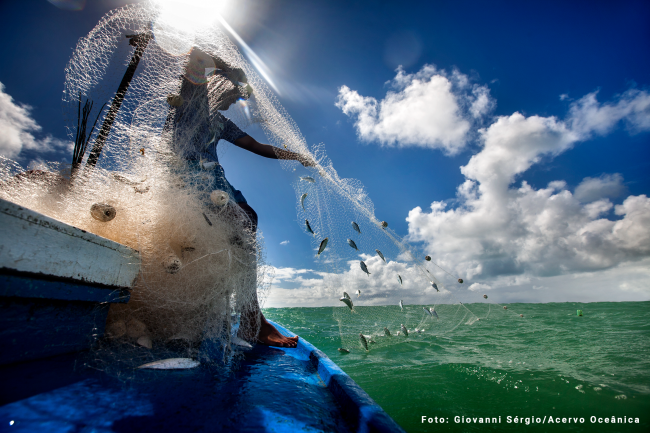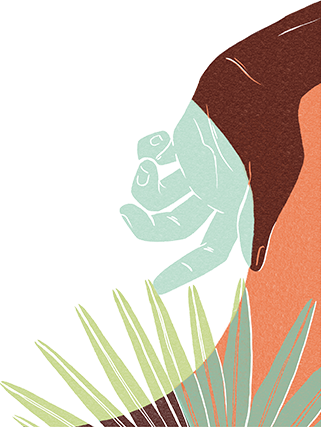 12.03.2020
12.03.2020
New and old partnerships in defense of coastal biomes
The Brazilian coast was hit by an unprecedented disaster in 2019. The first signs of the crude oil spill appeared in August. There are still reports of oil in some beaches seven months later. Over 2,000 km of beaches were affected, from the Northeast to the Southeast, polluting mangroves, rivers, coral reefs, and other biomes. This disaster had deep impact on the way of life of traditional populations living off artisanal fishing. We still do not know for sure what caused the oil spill, and as time passes we have the impression there will not be any answer. Consequences of this environmental tragedy could last for decades.

The first signs of the crude oil spill appeared in August 2019. Photo: Luiza Medeiros/ Oceânia collection.
The CASA Fund has a history of partnerships with dozens of groups working to preserve coastal biomes and improve the quality of life of their populations. In partnership with the Humanize Institute, the CASA Fund launched a call for projects focused exclusively on supporting communities affected by the oil spill. This partnership renews our hopes and will make it possible to support up to 15 projects.
We also have the case of ongoing projects with other objectives that had to adjust their sails because of new and stormy winds. This was the case of the Rede MangueMar (Mangrove Sea Network) in Rio Grande do Norte state that initiated its project in 2018 to promote training and networking spaces among fishermen/fisherwomen. Taken by surprise by the environmental disaster that hit the beaches, those spaces were used to discuss the new situation and help in networking with those people affected.

Artisanal fishing is not just another occupation; it is also a way of life deeply interwoven with the culture of coastal populations. Photo: Giovanni Sérgio/ Oceânica collection.
Throughout the project, the following activities were developed: five forums, a communication plan, a collective cleaning operation of the Pirangi River estuary and mangrove areas, participation in public hearings, meetings with the Rio Grande do Norte Office of the Federal Public Prosecutor (MPF), and a symbolic court called “People’s Tribunal of Rio Grande do Norte fishermen/fisherwomen: impacts on life, work, and the environment of artisanal fishing.” This event was attended by 90 fishermen/fisherwomen who presented testimonies of the impacts on their lives.
According to José Elio da Silva Souza, a Rede MangueMar founding member who lives in Ponta do Tubarão, a state sustainable development reserve (RDS), “we hope those responsible for this damage will fix it, and not only in terms of the environment but also socially, because fishermen and fisherwomen had to stop fishing. The next step is to continue our meetings and demand measures from the MPF. Without the Casa Fund support, we could not have done this.” The CASA Fund will continue to support the artisanal fishermen/fisherwomen who are the greatest protectors of coastal biomes in Brazil.
